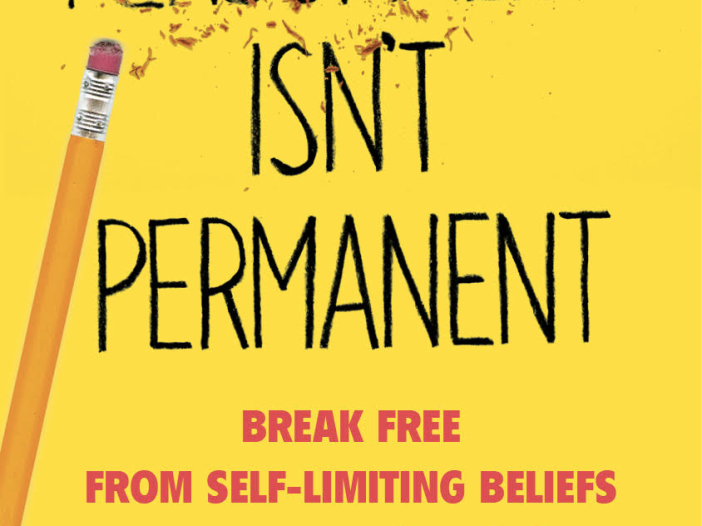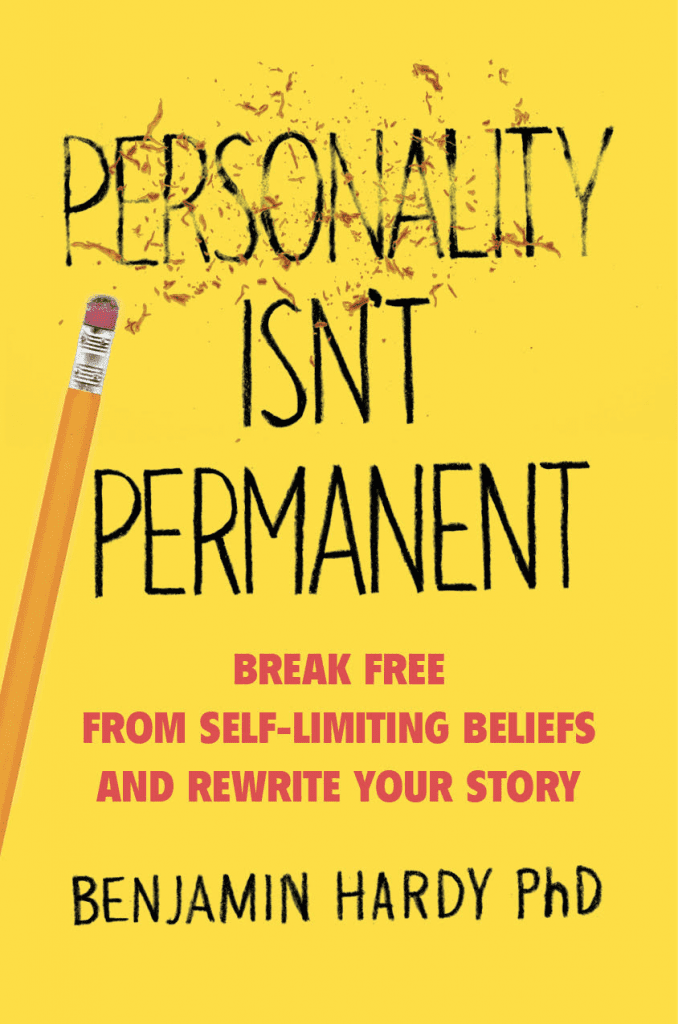

A painting is never finished–it just stops in interesting places.–Paul Gardner
For more than a year, I have been reading Ben Hardy’s blog posts on Medium.com. Ben was the #1 writer in the world on Medium.com for three years and I understand why.
Ben is a great storyteller who weaves together personal stories with research. Readers can relate to his stories and his use of research adds credibility.
I was fortunate to interview Ben for my Becoming a Sage podcast and for my Leadership Legacy Summit. Hardy is one of 20+ thought leaders I interviewed for my Summit which will be released the week of June 22nd. I am sharing the content FREE of charge, but you need to register on my website in order to receive it.
Since Hardy and I both blog about leading and living, he asked me to review his new book Personality Isn’t Permanent and I was honored to do so. If you are someone who’s tried to make big changes in your life, but you feel discouraged or stuck, I recommend you read his book. My rationale is below.
As someone who taught Organizational Behavior for decades, one of my favorite quotes was “the best predictor of future behavior is past behavior.” While I still think that is true for many people, now I understand why that is true and why it does not have to be the case.
The book begins with Hardy explaining how the self-reported personality tests used by organizations and other authorities are not valid. These tests view personality as fixed caused by prior conditions and events. Hardy presents evidence that personality is flexible and based on intentional decisions.
Hardy emphasizes the power of choice. He believes we can be in the process of becoming who we want to be if we focus on our future self.
“What matters is who you want to be. What matters are the choices you make.” Ben Hardy
Several chapters are devoted to debunking the myths surrounding personality tests. When we believe personality is fixed rather than flexible, it is easy to justify the role of the victim, to use our past as an excuse, and to feel stuck because of our past circumstances.
For me, the power in the book is how Hardy shares his personal stories to draw in the reader. He is willing to demonstrate his willingness to be vulnerable, his use of courage to overcome obstacles, and his creativity to engage readers.
The main premise of the book is that we can become who we want to be based on our vision, the choices we make along the way, and how willing we are to work at achieving this vision.
Hardy explains it this way by sharing a story from Matthew McConaughey:
“Your future self is an acquired taste.
You have to learn to want and value what you don’t currently want. If your future self is successful, you must learn to want what it takes to become successful. If you want to be healthier, you need to learn to want to be healthier. If you want to have deeper relationships, you need to learn to want that. Training your desires is essential to choosing goals that are worth pursuing.
Successful people start with their future self and use it as the filter for everything they do. Take, for example, Matthew McConaughey. During a speech where he won an Academy Award for Best Actor,
McConaughey explained who his “hero” was:
When I was fifteen years old, I had a very important person in my life come to me and say, “Who’s your hero?” And I said . . . “You know who it is? It’s me in ten years.” So I turned twenty- five. Ten years later, that same person comes to me and says, “So, are you a hero?” And I was like, “Not even close! No, no, no.” She said, “Why?” I said, “Because my hero’s me at thirty- five.” So you see, every day, every week, every month, and every year of my life, my hero’s always ten years away. I’m never gonna be my hero. I’m not gonna attain that. I know I’m not, and that’s just fine with me because that keeps me with somebody to keep on chasing.
One day, you will become your future self. The question is: Who is your future self?
In answering this question, you should think in terms of what you’d ideally want. Not in terms of your current circumstances or identity.
Who do you want to be?“
Who cares who you’ve been.
Another aspect that makes the book valuable and relevant is the material devoted to how to learn these learnable skills which Hardy advocates. He not only talks about the value of journaling, but he describes his own process, how he does it, and why it works.
Leadership is not about a position or title. It is about relationships. I found Hardy’s information on building relationships to support who you want to become fascinating.
He quotes Harvard business professor Clayton Christensen, “The path to happiness is about finding someone who you want to make happy, someone whose happiness is worth devoting yourself to.”
Hardy adds this:
“Pro tip: Don’t marry for personality. Why? Because personality will change over time. Obviously, there needs to be a connection. But the initial personality you fall in love with will not be the same person two, five, ten, or twenty years later. As the context and complexity of the relationship evolves—jobs, money, moving to new locations, kids, travel, aging, tragedies, successes, new information, new experiences, cultural shifts, identity shifts—each party’s personality will change.
Moreover, even the most fascinating or attractive personality will lose its novelty over time. Rather than marrying a person for who they currently are, it takes far more wisdom and discernment to marry for who you can see them becoming—their future self—and how they will enable you to become your desired future self. Will marrying this person enable you to do and be all that you truly want? And will you enable them to be all that they truly want? Who and what could both of you become if you were partners?
Marry for aligned purpose, not personality. That purpose will transform both of you over time.“
My purpose is to help people make the rest of life the best of life. This means continuing to learn and to grow throughout life. Stay curious. Ask questions. Be relevant. Continue to be engaged.
We may “retire” from a career, but we don’t retire from life. We will be doing something. Reading Hardy’s book will help you realize why all of this is true and how to stay in the game of life.
Another person I follow for my sage-ing© work is Chip Conley, co-founder of the Modern Elder Academy. This academy is designed as a mid-life wisdom school–the cool school for midlifers.
Longevity has increased. But are we living longer or taking longer to die? According to Conley, instead of lifelong learning, we should be talking about long-life learning. Personality Isn’t Permanent provides numerous practices for us to continue learning for our long lives.
I encourage you to follow the work of Ben Hardy. From reading his work, I have learned a lot about leadership, life, and writing. If you want a sneak peek at his book, you can receive the first chapter FREE by clicking here.
“What matters is who you want to be. What matters are the choices you make.” Ben Hardy
